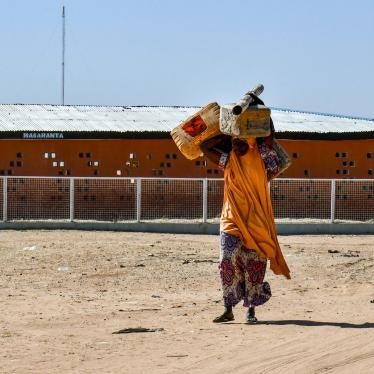You Are All Terrorists came the dreaded words, as the blows and kicking mercilessly rained down before a police car pulled up and took the suspect away.
A short while later, after two officers had raped her and bundled her out of the car, the suspect stumbled disoriented along dark deserted streets.
The experience of a hardened black-listed terror operative a thousand miles from prying eyes? Or an isolated case of police abuse by over-zealous officers trying to secure a confession?
It was neither. This is how Kenyan police treated Nadifa, a young Somali refugee mother of three, for being, well, a young Somali refugee mother of three.
And it happened in a Nairobi suburb, a 20-minute drive from Parliament and government offices, embassies, UN headquarters and hotels bustling with tourists.
Nadifa is one of more than 100 refugees, asylum-seekers and Kenyans of Somali ethnicity I recently interviewed about their ordeal when Kenyan police unleashed 10 weeks of terror on their community in late 2012 and early 2013 in the mainly Somali suburb of Eastleigh.
There is no evidence that the Kenyan authorities have done anything to investigate or punish those responsible.
Even worse, they want to push ahead with their plan mooted in December last year to force 55,000 registered refugees and asylum-seekers from Nairobi into squalid overcrowded border camps, for which they would need hundreds if not thousands of police. The High Court will soon rule on whether the plan is lawful.
Refugees told me that on November 19 – a day after unknown perpetrators attacked a bus in Eastleigh, killing seven people and injuring 30 – police swept through Eastleigh, raping, beating, stealing from and arbitrarily detaining at least 1,000 men, women and children, drawing blood as they went.
The police branded them “terrorists”, threatened to force them into refugee camps already sheltering 550,000 people, and demanded they pay large amounts of money – sometimes as much as Sh50,000 ($600) – to go free.
The action by the police may have been motivated by revenge for over 30 apparent terrorist attacks in Kenya since October 2011, which have resulted in dozens of deaths and hundreds of casualties.
Only one person, a Kenyan not of Somali ethnicity, has been convicted.
Officers who raped women or who repeatedly beat, kicked or punched their victims while calling them terrorists or extorting money from them committed torture under international law, which defines the crime as including officials inflicting severe pain in order to punish someone or to coerce them into doing something against his or her will.
Both Kenyan and international law require authorities to investigate suspected torture cases and to prosecute and punish those responsible, including commanding officers who are responsible for the conduct of subordinates.
Yet Kenyan authorities have completely ignored requests to comment on the abuses and torture allegations, let alone investigate and bring those responsible to justice.
The Kenyan authorities are not the only ones who have retreated into deafening silence.
The United Nations High Commissioner for Refugees (UNHCR) has also failed to live up to its role as the only international organisation mandated to protect refugees.
Not once during or since the 10-week spree of violence did UNHCR publicly protest the abuses, relying instead, it says, on quiet diplomacy with the Kenyan authorities.
But the behind-the-scenes meetings between UN and Kenyan officials didn’t impress Kenya’s police, who clearly felt there was no price to pay for attacking refugees.
The government should speak out firmly and publicly to make sure that the court decision, whichever way it goes, does not lead to a new wave of police abuses.
It should show it respects everyone’s rights by swiftly investigating and punishing abusive officers.
And the UNHCR should closely monitor the well-being of Nairobi’s refugees, document any further abuses and publicly condemn them.
Mr Simpson is Human Rights Watch’s senior refugee researcher and author of the new report "You Are All Terrorists: Kenyan Police Abuse of Refugees in Nairobi."









